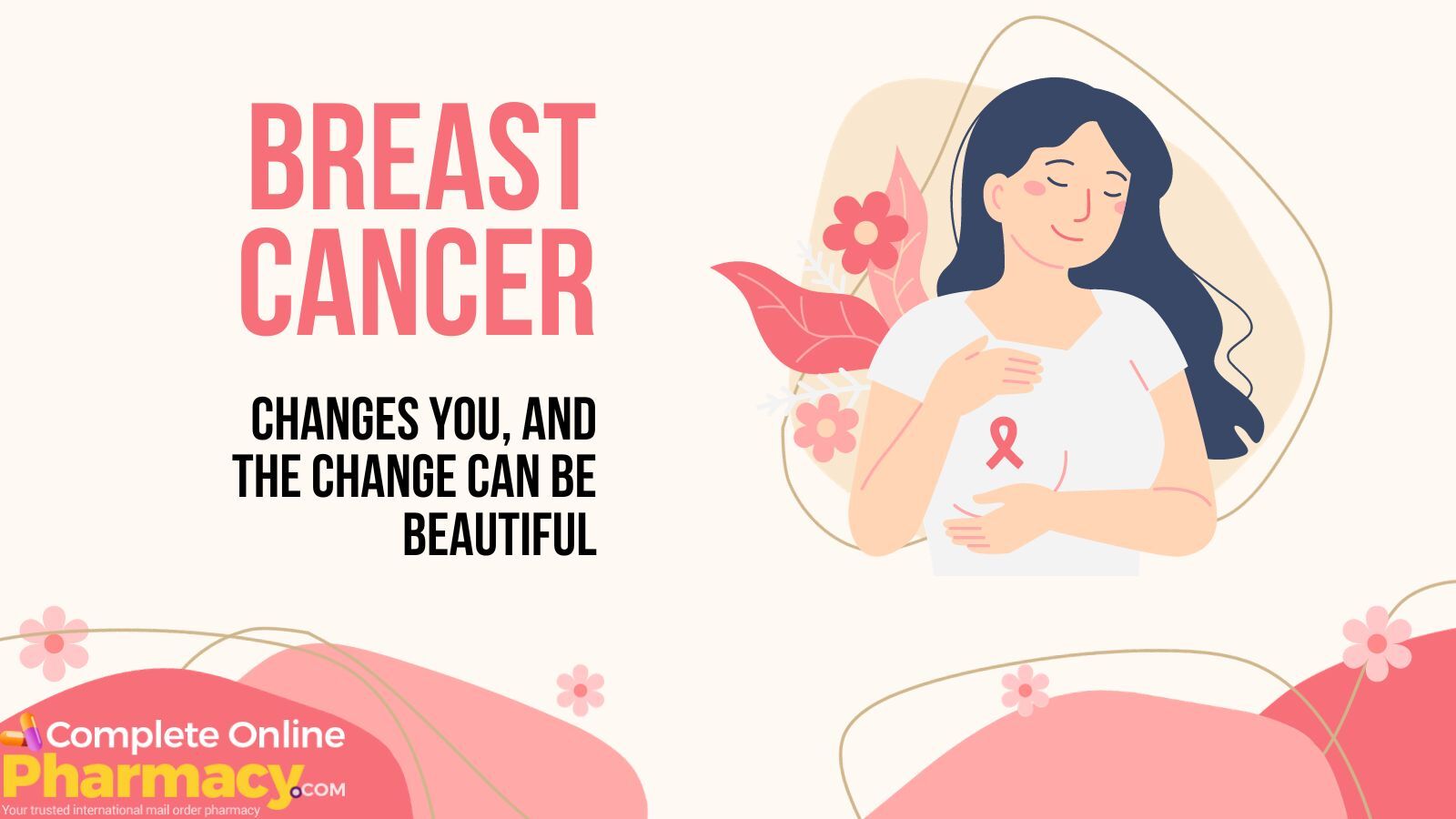US Toll Free : +1-800-897-1053 Call or Fax 9.30 to 5.30 pm EST Mon to Fri.
- Language
- Refer $
- Track Order
- Request a Call Back
- %
- % Coupons and offers
-
0
Your shopping cart is empty!
- Checkout
11/06/2023
Breast Cancer is a condition in which the cells present in the breast grow uncontrollably. A breast consists of 3 major parts, i.e., lobules, ducts, and connective tissues. So, the type of breast cancer depends on which breast cell turns into a cancer cell. Mostly, breast cancer starts in the lobules or ducts, but it can also spread outside the breast via lymph vessels and blood vessels. Make sure to get a complete check-up if you feel abnormal growth in your breasts because if it is left unchecked, it can spread throughout the whole body and become fatal. There are several treatments available, but it depends on the type and spread of the cancer. A person suffering from this condition can opt for surgeries, radiation therapies, breast cancer tablets, or a combination of all these options.

The two most familiar kinds of breast cancer are –
In this kind of breast cancer, cancer cells start from the lobules and then further spread to the nearby breast tissues. There is a possibility that these invasive cancer cells also spread to other body parts, also known as Metastasis.
In this kind, the cells with cancer present in them begin in the ducts. Then, they start to grow outside the ducts and spread to the other parts of the body.
Although the above two are more prevalent kinds, there are other types of breast cancers as well, some of which are less common than others. These include Paget's disease, medullary, mucinous, and inflammatory breast cancer. Another breast disease that can be a predecessor to invasive breast cancer is ductal carcinoma in situ (DCIS). In this condition, the cancer cells are limited to the duct lining and have not spread to other tissues in the breast.
Everyone experiences different symptoms of breast cancer, and some don't even have any. Some alarming symptoms of breast cancer are –
Breast pain.
Flaky skin around the nipple area or other parts of the breast.
Redness around the nipple area or other parts of the breast.
New lumps either in the armpit or the breast.
Irritation of breast skin.
Nipple discharge, including blood.
Change in the shape and size of the breast.
If you face any of the signs and symptoms mentioned earlier, confer with your healthcare provider right away.
It's important to note that most breast lumps are really not cancerous. However, in cases where the lump is cancerous, detection at an early stage is the key to a successful treatment, especially when the cancer hasn't flared to the nearby lymph nodes. Although breast cancer can spread to other areas of the body, the most common detectable site of spread is often the lymph nodes under the arm. It's also likely to have cancer-bearing lymph nodes that cannot be felt. As time goes on, cancerous cells may extend to other organs such as the lungs, liver, brain, and bones, which can trigger new cancer-related problems such as bone pain or headaches.
There are a variety of options to treat Breast cancer. The treatment totally depends on the type of breast cancer you are dealing with and on its spread. Primarily, people with breast cancer condition are suggested to opt for more than one type of treatment. Below are a few kinds of treatments that are indicated for a person who has breast cancer
Chemotherapy – In this method, special breast cancer medications are used to kill and shrink the cancer cells. The medication can be given in the form of pills, i.e., orally or in your veins, and sometimes even both at later stages.
Surgery – In the surgery option, doctors cut the cancer part from a body's organ.
Radiation Therapy – In radiation therapy, very high-energy rays are used to kill cancer cells. These rays are similar to X-rays.
Biological Therapy – This type of therapy helps fight the cancer cells or, in some cases, control the side effects by working with the body's immune system. Doctors recommend Tykerb tablets as the primary biological therapy drug for patients suffering from this condition.
Hormonal Therapy – Hormonal therapy works by blocking the hormones the cancer cells need to grow. The best hormonal therapy drug to treat breast cancer is Nolvadex tablets.
Choosing the appropriate treatment for breast cancer can be a daunting task. These days, various clinical trials are also going on to find a new, safe, and effective way to treat Breast Cancer. It's always better to talk to your cancer doctor about the available treatment options that cater to your specific kind and stage of cancer. Your healthcare professional can exemplify the risks and benefits of each treatment and their respective side effects. In some cases, people opt for a second opinion from more than one cancer doctor. Getting a second opinion may help you choose the treatment that is right for you. So, it's always better to be well-informed and consult with your doctor before you buy breast cancer drugs online or begin any treatment.
To conclude the blog about breast cancer, we should all know that the WHO Global Breast Cancer Initiative (GBCI) is working rigorously towards reducing the breast cancer mortality rate by 2.5% per year globally. This would help prevent 2.5 million breast cancer deaths worldwide between 2020 and 2040. It can only be achieved through three essential pillars: health promotion for early detection, timely diagnosis, and comprehensive breast cancer management. One way to accomplish this goal is by providing public health classes to improve awareness among men and women of the signs and symptoms of breast cancer. By understanding the value of early detection and treatment, more men and women will consult medical practitioners when breast cancer is first suspected and before any cancer present is advanced. This approach is feasible even in countries where mammographic screening is not available. Healthcare provider education is also vital in identifying early signs and symptoms of breast cancer disease so that the patients can be referred to diagnostic services when required. Early-diagnosed patients should receive effective cancer treatment, which in many stages may need specialized cancer care. A cancer facility or hospital should use breast cancer as a model to optimize the best treatment possible for people who have breast cancer and also improve the management of other cancers to increase life expectancy.

Comments